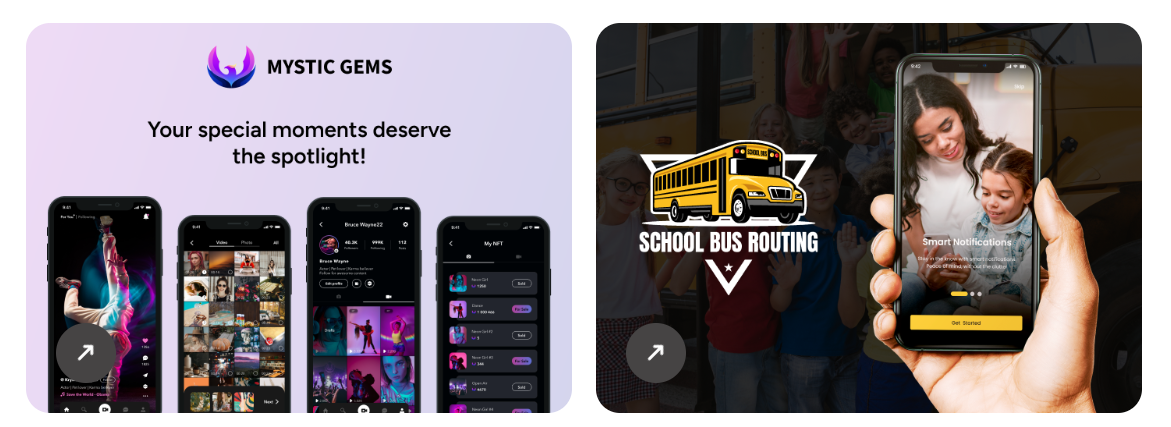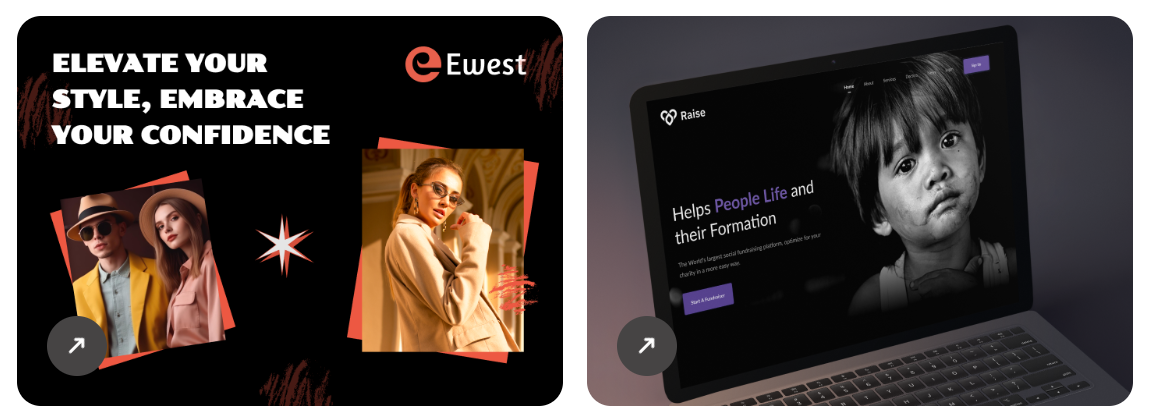Building a Scalable BDD Automation...
November 12, 2025

Thinking about making a Mobile App Development? You’re not alone. The mobile app world is full of chances, packed with millions of apps on both the Google Play and Apple App Stores for just about everything you can think of. This isn’t just a place to show off new tech; it’s also a booming business area, set to rake in $613 billion by 2025.
As everyone in the digital business race aims to get their share of this big prize, the big question is: What does it cost to turn an app idea into something real? Let’s learn about the mobile app development cost scene of 2024 with us. We’ll cover the basics of how to plan your budget, what affects how much you’ll spend, how to make money with your app, and smart ways to make sure your app-making journey is as budget-friendly as it can be.
Mobile App Development can cost a lot or a little, usually between $25,000 and $150,000. But if you want something very special and complex, it might cost more than $300,000. Why such a big range? Well, it depends on how complicated your app is, what cool things it can do, and how you plan to build it.
It sounds a bit scary with all these numbers, right? But don’t worry, once you understand what affects the cost, you can start to figure out how much you might need to spend. There’s a way to guess the cost by looking at how many hours it will take to make your app and then multiplying those hours by how much you pay the people doing the work. This helps you get a rough idea of your app’s price tag, helping you plan how to turn your app idea into something real without breaking the bank.
When exploring the Mobile App Development expenses of global apps that have transformed user experience and now dominate the app industry, it is useful to look at a few noteworthy examples. These apps not only changed the way we engage with technology, but they also came with their development costs. Below, we look at the usual costs associated with developing such ground-breaking applications, giving light to the financial investment required to create a globally recognized app.
Various key factors influence the cost of producing a mobile app. Knowing these aspects allows you to make smarter, more cost-effective decisions that not only ensure you get the most out of your investment but also help you stay within your budget. These include the Mobile App Development complexity, functionality, technology, and chosen development path.
A mobile app’s complexity has a significant impact on its development costs. Basic apps with key functionalities such as login and navigation cost between $5,000 and $50,000. Medium complexity apps, which include features such as social network integration and payment gateways, can cost between $50,000 and $120,000. Complex apps that incorporate technology such as AR/VR and AI and support several languages can cost $100,000 or more, with some reaching $300,000 or more, while providing an advanced, immersive user experience.
App Complexity | Level of Complexity | Average Timeline | Average Cost |
| Simple app | MVP functionality, Basic UI | 2-3 months | $5,000-$50,000 |
| Medium Complex app | Sophisticated features, Custom UI | 3-9 months | $50,000-$120,000 |
| Highly complex app | Advanced features, Bespoke UI, Two platforms | 10+ months | $100,000-$300,000 |
The cost of developing an app is heavily influenced by the features and functionality you choose to include. Starting with a base cost, each additional feature added to your app might raise the development cost. To create a fantastic user experience without going over budget, it’s best to focus on the critical features in the app’s initial release. Choosing a Minimum Viable Product (MVP), a rudimentary version with fundamental functionality can save time and money while gathering critical customer input.
Features | Function | Approximate Time | Average Cost |
| Payments |
| 55-80 hours | $3,000-$3,500 |
| Maps |
| 110-130 hours | $4,000-$5,000 |
| Calls |
| 350-400 hours | $14,000-$16,000 |
There are so many factors that determine how much it will cost to Build an app in the future, which is based on its category. We analyze problem domains and then set out to research different app categories. In our work, a number of expected users, specific functions as well as security needs change these variables, and thus, the whole development cost.
App Category | Cost Range | Approximate Hours |
eCommerce app | $40,000 – $150,000 | 1,200 |
Social media app | $60,000 – $300,000 | 1,200 |
Learning app (Duolingo) | $55,000 – $225,000 | 1,400 |
Dating app (Tinder) | $60,000 – $350,000 | 1,400 |
Gaming app | $50,000 – $250,000 | More than 1,800 |

Generally, application development boils down to application design and animation which serves as a basis for the engagement with your audience and so, the pockets begin to hurt. Due to the process of design being the determining factor and being implemented before usage can start, user experience gets affected negatively. Much here concentrates on ensuring that the apps are highly designed – that is, of high quality.
When it comes to app design, you generally have two routes: Custom and Standard UI – no matter what your style is, we have something for you. Designing and implementing Custom UI, which is tailored and offers an exclusive user experience, is not so easy and costly as designing and implementing Standard UI, which is general and its users may be different in every case and is less expensive as it is not specified to a particular type of user.
| App Process | Design Tasks | Average Development Time | Average Development Cost (Approx) |
| App design research | Market research, Competitor analysis, Market trend analysis, Selecting ideal solutions | Based on a niche and available resource | $100-$350 |
| UX design | Rough sketches, Low fidelity wireframes, High fidelity wireframes | Simple: 10-14 hours<br>Medium: 50-60 hours<br>Complex: 150+ hours | $2,000-$8,000 |
| UI design (visuals) | Mood boards, UI mockup samples, Final UI mockups | Simple: 14-20 hours<br>Medium: 80-90 hours<br>Complex: 100+ hours | $10,000-$40,000 |
| Branding | Creating brand identity, Logos, icons, and social media | – | $5,000-$20,00 |
What a platform should be for your mobile app Development is one of the key requirements while designing it which, in turn, is determined by target screens and the limitations of the budget. Either your decision could land in iOS, Android platforms, web, or cross-platform development, potentially determining where your targeted audience is more active. For a startup or any other person with a limited budget, a phylogenetic approach to app development is a discoverable pathway that begins with a single platform, and growth to other platforms is relatively inevitable as resources become available.
App Platform | Cost Range |
Native apps (Android & iOS) | $50,000 to $100,000 |
Cross-platform apps | $25,000 to $60,000 |
Web apps | $15,000 to $50,000 |
Hybrid apps | $10,000 to $150,000 |
The continued life of the app requires that app maintenance is an essential and convincing process, which goes far beyond the first phases of a development stage. Being well aware of the market demand and maintaining pace with the latest line of technologies and the new releases of devices and operating systems is beneficial but priced too. From that moment onward, when your app comes into the life of the users, you will notice various maintenance and support costs that might affect your budget.
This estimation of application maintenance usually comes up with 20% of the overall cost of development on an annual basis. Ongoing investments are a key tool for securing stability, relevance, and appealing to its users, retaining value in the initial investment in the application’s development.
Code reuse: One of the game-changing tactics that can reduce the cost of mobile app creation to a greater extent is code reuse. Companies generally may lessen the development costs by simply reusing some codes from a working app minus all the custom brand-wise tools they will have to create for their apps.
This strategy employs the regenerative unit code for shared functions such as contact forms and login pages but repurposes the runtime of the main functions to create platform uniqueness. Per the professionals, such as the Gurus at Appinventiv, this balance is a primary prerequisite, not only for cutting expenses but also to guarantee that the app is unique enough amid many existing similar applications.
Leveraging existing code could potentially lead to the least expense at 20-30% when it comes to developing an app from scratch and thereby saving development costs, which could be a fantastic option for those organizations that are seeking to do maximum return on investments in development.

Skilled labor – size or locality of the construction crew: The size of the development team along with their allocation can be one of the most important factors in the overall cost of mobile application development. Although the options vary widely—from engaging an experienced application development company, a local team, or assembling that team in-house, to collaborating with freelance developers—the companies always have to answer this question for themselves.
If you choose a mobile app development company with good experience, it will give you and your business App a big advantage, particularly when you look to make an excellent and very powerful application that comes with many advanced features and functions.
Here’s a rough breakdown of the estimated costs associated with different aspects of app development, based on the complexity of the app:
Component | Simple App | Medium App | Complex App |
Development Time | 2-6 months | 6-9 months | 9-15 months |
Developers | $30-40,000 | $50-60,000 | $100,000+ |
UI/UX Designer | $4-5,000 | $5-7,000 | $10-15,000 |
Project Manager | $5-7,000 | $10-15,000 | $10,000+ |
QA Specialist | $8-10,000 | $15-20,000 | $20,000+ |
Business Analyst | $2-3,000 | $5-8,000 | $8-10,000 |
DevOps | $2-4,000 | $5-7,000 | $10,000+ |
Solution Architect | $1-3,000 | $5-8,000 | $9,000+ |
Total | $20-50,000 | $50-100,000 | $100,000+ |
This table offers a glance at what you could need to invest in your mobile app development team, bearing in mind the specifics of your app’s complexity. It shows how other developers have a great input in the overall budget which is not only their depending on direct costs but also, on UI/UX designers, project managers, QA specialists, business analysts, DevOps, and solution architects. After taking into account the team configuration and the slow costing issue these two are important steps towards planning for your mobile app development project.
Though mobile app development seems difficult at the start, it can be easy to have the confidence to break down the process into steps that make the journey enjoyable. Here’s a step-by-step guide to turn your app idea into reality: Here’s a step-by-step guide to turn your app idea into reality:
Choosing Inexture Solutions for your mobile application development inputs a team that is recognized in the digital arena. We have an experienced team of qualified professionals who can bring your idea to reality and that is why Inexture Solutions offers a smooth, functional development process that is as easy as it can get for any business trying to achieve their set goals.
For startups ready to Hire Mobile App Developers for their new app idea or businesses that have an existing application and want to update it with new features or improve the app’s performance, Inexture Solutions has the creativity, technology potential, and user-centric approaches necessary for this task to be completed. They cherish their expertise in the field of quality assurance and the latest in technology, which entails that their app is not only well-designed but masterfully crafted. Such an approach guarantees its originality and excellence.
Implementing the detailed responsibilities of mobile app development involves having a close knowledge of the components that are behind the cost, choosing the applicable platform, and the need to strategize from the initial market research, the launch, and even taking care of the well-being of customers afterward. Through the careful study of the development process, accounting for hidden costs such as app maintenance and security, and through the choice of step-by-step planning with development and testing, companies improve their likelihood of jumping ahead of their competitors in the demanding app market.
Finding the optimum partner with Inexture Solutions for mobile app development guarantees incredible results – the team already being full of expertise, innovation, and putting quality to the highest standards to turn the project into perfection from the user’s perspective. En route their mobile app development, whether you’re just a beginner or you want to extend your digital presence, the learning process is a never-ending journey that if approached with the right strategy and support can yield incredible results to the audience you serve.